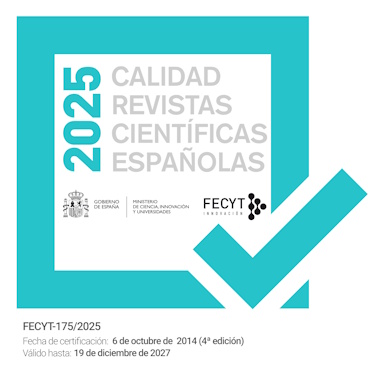Libya: the “new war” for economic power
Keywords:
Libya, militias, energy resources, revolution, political transitions, armed conflictsAbstract
Revista CIDOB d’Afers Internacionals, nº 109
Quadrimestral (January-April 2015)
ISSN:1133-6595 | E-ISSN:2013-035X
This article addresses the current situation in Libya from a perspective that takes as its reference the importance of energy resources as a recurrent element in the political instability and configuration of the Libyan state in its recent history. For this it deals, first of all, with the debate on the importance of economic factors in explaining the roots of the conflict. Secondly, it analyses the current disposition of the various centres of power in relation to the control of the country’s sources of wealth; and, to conclude, it reveals the challenge the fight to control hydrocarbons poses to the achievement of a political process.
>> The full text articles of this issue are available only in Spanish language
References
Ballentine, Karen y Nitzschke, Heiko. «Beyond Greed and Grievance: Policy Lessons from Studies in the Political Economy of Armed Conflict». International Peace Academy Policy Report (octubre de 2003).
Burgat, François y Laronde, André. La Libye. París: PUF (colección «Que sais-je ?»), 3ª edición, 2003.
Collier, Paul. «Rebellion as a Quasi-Criminal Activity». Journal of Conflict Resolution, vol. 44, n.º 6 (2000), p. 839-853.
Collier, Paul. «The Market for Civil War». Foreign Policy (2 de noviembre de 2003), p. 38-45.
Cramer, Christopher. «Homo Economicus Goes to War: Methodological Individualism, Rational Choice and the Political Economy of War». World Development, vol. 30, n.º 11 (2002), p. 1.845-1.864.
Deeb, Marius y Deeb, Mary. Libya since the revolution: aspect of social and political development. Nueva York: Greenwood Pub Group Inc., 1982.
Gallies de Salies, Bruno. «Réformes et guerre de succession dans la Jamahiriya». Confluences Méditerranée, n.º 71 (2009).
García Guindo, Miguel. La consolidación de los movimientos insurgentes: Al Qaeda en Irak. Granada: Universidad de Granada, 2012.
García Guindo, Miguel. «Insurgencia y Contrainsurgencia», en: Jordán, Javier (coord.). Manual de Estudios Estratégicos y Seguridad Internacional. Madrid: Plaza y Valdés, 2013, p. 287-307.
Gutiérrez de Terán, Ignacio y Álvarez-Ossorio, Ignacio. Informe sobre las revueltas árabes. Ediciones del Oriente y del Mediterráneo, 2011.
Gurr, Ted. Why Men Rebel. Princeton, NJ: Princeton University Press, 1970.
Izquierdo, Ferrán. Poder y felicidad. Barcelona: Los libros de la catarata, 2008.
Kaldor, Mary. Las nuevas guerras: la violencia organizada en la era global. Barcelona: Tusquets, 2001.
Long, Austin. On the other war: lessons from five decades of RAND Counterinsurgency Research. Santa Monica: Rand Corporation, 2006.
Martínez, Luis. «Libya from Paramilitary Forces to Militias: The Difficulty of Constructing a State Security Apparatus». Policy Alternatives (mayo de 2014) (en línea) http://www.arab-reform.net/sites/default/files/Martinez%20-%20formatted%20-%20May%207.pdf
Mesa, Beatriz. «Libia: La lucha por los recursos». Documento Opinión, n.º 147 (19 diciembre de 2014a). Instituto Español de Estudios Estratégicos (en línea) http://www.ieee.es/Galerias/fichero/docs_opinion/2014/DIEEEO147-2014_PoderEconomico_Libia_BeatrizMesa.pdf
Mesa, Beatriz. «¿Quién controla Libia?». Esglobal (30 de julio de 2014b) (en línea) http://www.esglobal.org/quien-controla-libia/
Ouannes, Moncef. Militaires, élites et modernisations dans la Libye contémporaine. París: L’Harmattan, 2009, p. 220-240.
Parlament européen. « Résolution sur la situation en Libye » (15 de enero de 2015) (en línea) http://www.europarl.europa.eu/sides/getDoc.do?type=TA&language=FR&reference=P8-TA-2015-0010
PNUD-Programa de las Naciones Unidas para el Desarrollo. Informe sobre Desarrollo Humano 2010 (2010) (en línea) [fecha de consulta15 de noviembre de 2014] http://hdr.undp.org/sites/default/files/hdr_2010_es_summary.pdf
Pye, Lucian W. Guerrilla Comunism in Malaya: Its Social and Political Meaning. Princeton, NJ: Princeton University Press, 1956.
Ross, Michael L. «Does oil hinder democracy». World politics, n.º 53 (2001).
Senlis Council. Countering the insurgency in Afghanistan: losing friends and making enemies. Londres: MF Publishing LTD, 2007.
Wickham-Crowley, Timothy P. Guerrillas and Revolution in Latin America: A Comparative Study of Insurgents and Regimes Since 1956. Princeton, NJ: Princeton University Press, 1992.
Young, John. Peasant Revolution in Etiopia: The Tigray People’s Liberation Front, 1975–1991. Cambridge: Cambridge University Press, 1997.













